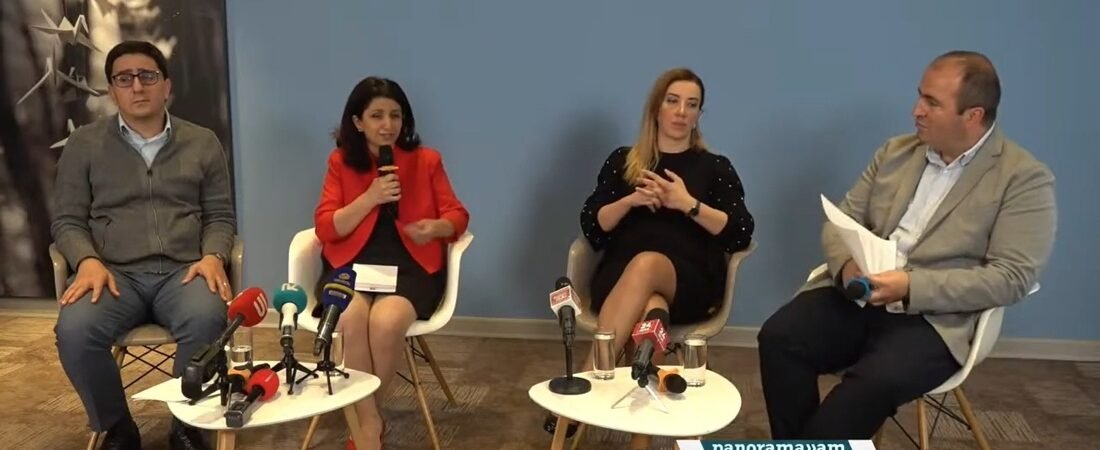The European Court of Human Rights has demanded that Azerbaijan submit a report on the detention and health status of 23 Armenian prisoners held in Baku’s prisons, setting a deadline of November 4. This was stated by Siranush Sahakyan, the representative of Armenian prisoners’ interests at the European Court, during a discussion on the rights of Armenian prisoners and hostages held in Baku.
According to Sahakyan, in July, Azerbaijan had requested the Court to lift its obligation to submit the report. However, following objections from the Armenian government and representatives of the prisoners, the Court rejected Azerbaijan’s request and obliged Baku to provide information on the Armenian detainees.
Armenian prisoners in Baku have been held in complete isolation for about three months, with no international independent organizations able to visit them. No information is available regarding their detention conditions, health, or psychological state. Representatives of the International Committee of the Red Cross (ICRC) last met the prisoners in June. Since then, the ICRC has ceased its activities in Baku at the request of Azerbaijani authorities.
“The Azerbaijani side confirms that 23 individuals are in custody,” Sahakyan said during the discussion, noting that this number is verifiable. “Thanks to the Red Cross, its personnel have seen these individuals. This means there is verifiable information that they are alive. However, this does not necessarily indicate that the number of people initially captured was the same.”
Sahakyan added that there have been documented war crimes, including killings of prisoners, sometimes in cases where the bodies of those shot were returned to the Armenian side.
“There is combined evidence in these cases: first, that the individual was captured, and second, that they were killed,” she said.
She also highlighted another troubling issue: “Second, prisoners have simply disappeared. That is, during the period following capture, certain developments occurred that caused us to lose information about these individuals. The Azerbaijani side takes a denialist approach, denying its connection to forcibly disappeared prisoners and refusing to provide information.”
In these circumstances, no independent international organization can conduct search operations, confirm the fate of the missing prisoners, or provide verified information.
Sahakyan emphasized that while 23 prisoners are officially reported, there are also several dozen forcibly disappeared individuals.
“Repeatedly, the number 80 is mentioned. These are essentially cases verified during human rights fact-finding work. This can never be considered exhaustive. Human rights defenders have documented and informed the public of at least 80 cases, but in reality, the number could be much higher.”
Among the 23 prisoners currently held in Azerbaijan, eight are from the military-political leadership of Artsakh, and five were captured during the 2020 war.
“In other words, we note that Azerbaijan is currently illegally detaining both those captured during the 44-day war in 2020 and Armenians taken hostage, arrested, or detained as a result of the 2023 events,” Sahakyan said.
The ICRC’s last visit to Baku was in June, marking its final authorized visit. Azerbaijan has since ceased the ICRC’s operations in its territory and closed all UN offices. At present, no neutral international independent organization can visit the Armenian prisoners in Baku to assess their condition directly. As a result, human rights defenders consider all information coming from Baku to be partial, one-sided, and, most importantly, unverifiable.
Yeghishe Kirakosyan, head of Yerevan State University’s Master’s program in “International Courts and Arbitration,” noted that trials in Baku are expected to continue, with a one-sided narrative being imposed. The international law expert expressed hope that judicial processes in international courts will continue, as they provide vital security guarantees, particularly regarding the protection of detainees’ rights.
“In my personal, narrow professional view, peace primarily requires directly addressing humanitarian issues. This is how I envision the logic of peace, especially regarding the return of captured individuals,” Kirakosyan said.
Human Rights Defender Anahit Manasyan also considers the issue deeply concerning. She previously told Radiolur that it is discussed in all meetings with international organizations.
“This issue is discussed daily. I regularly meet with various international partners. For example, very recently, I met with the head of the ICRC’s Armenia delegation. Naturally, one of the most important topics was the issue of ethnic Armenians deprived of their liberty in Azerbaijan, those whose whereabouts are unknown, and their families’ rights. This year, I made this issue a special point of discussion during several foreign visits. For example, I met with the Secretary General of the Council of Europe in Strasbourg, where the topic was specifically discussed. I also met with the Council of Europe Commissioner for Human Rights in Strasbourg this year, and addressed the issue during a working visit to Geneva. In all official meetings—whether with the UN or high-ranking officials—I have raised this issue,” Manasyan said.
She stressed the importance of international actors with human rights mandates properly addressing the issue.
“There are also other monitoring mechanisms, such as the Council of Europe’s Committee for the Prevention of Torture, which is, of course, not a permanent mechanism. Naturally, these are one-time visits, but they can play an important role in any context. So far this year, no visits have been recorded, but I hope that will change.”
According to Sahakyan, there is currently information indicating that the European Committee for the Prevention of Torture has visited Azerbaijan. She did not rule out the possibility that, during these visits, the committee’s representatives may have met with some Armenian prisoners.
Sahakyan refrained from providing further details at this time, stating that the organization will issue a statement in the future.

